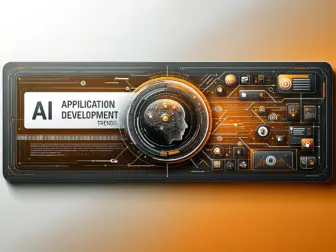Tag - AI automation trends
Exploring the Latest AI Automation Trends Shaping the Future of Business
Artificial Intelligence (AI) automation is revolutionizing various industries, transforming the way businesses operate and boosting efficiency levels. As technology continues to evolve at a rapid pace, it is essential for organizations to stay informed about the latest trends in AI automation to remain competitive in today’s market. Let’s delve into some of the key trends that are shaping the future of business:
1. Robotic Process Automation (RPA): RPA is a technology that uses software robots to automate repetitive tasks, allowing businesses to streamline their operations and increase productivity. The adoption of RPA is on the rise, with more companies leveraging this technology to improve efficiency and reduce costs.
2. Machine Learning: Machine learning algorithms enable AI systems to learn from data and make predictions or decisions without being explicitly programmed. Businesses are increasingly using machine learning to analyze large datasets, identify patterns, and make data-driven decisions.
3. Natural Language Processing (NLP): NLP is a branch of AI that enables computers to understand, interpret, and generate human language. NLP applications, such as chatbots and virtual assistants, are becoming more prevalent in customer service, marketing, and other areas of business.
4. Autonomous Vehicles: The development of autonomous vehicles is one of the most exciting AI automation trends in recent years. Companies like Tesla, Waymo, and Uber are investing heavily in self-driving technology, with the potential to revolutionize transportation and logistics.
5. Predictive Analytics: Predictive analytics uses statistical algorithms and machine learning techniques to forecast future outcomes based on historical data. Businesses are using predictive analytics to anticipate customer behavior, optimize operations, and mitigate risks.
6. Augmented Reality (AR) and Virtual Reality (VR): AR and VR technologies are being used in conjunction with AI to enhance customer experiences, improve training programs, and facilitate remote collaboration. These immersive technologies are transforming various industries, from retail and healthcare to manufacturing and education.
7. Cybersecurity: AI automation is also playing a crucial role in enhancing cybersecurity measures, helping organizations detect and respond to security threats in real-time. AI-powered security solutions can analyze vast amounts of data to identify anomalies and protect sensitive information.
8. Personalization: AI automation enables businesses to deliver personalized experiences to customers by analyzing their preferences, behavior, and interactions. Personalization strategies, such as recommendation engines and targeted marketing campaigns, are becoming increasingly effective in driving customer engagement and loyalty.
In conclusion, AI automation trends are shaping the future of business by revolutionizing processes, enhancing decision-making, and improving customer experiences. Organizations that embrace these trends and leverage AI technologies effectively will be well-positioned to succeed in an increasingly digital and competitive marketplace.
